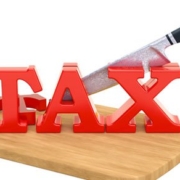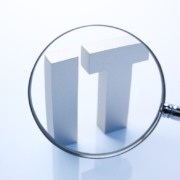SMALL BUSINESS EXPENSES 101
For small business owners, tax breaks often come in the form of tax deductions – which can offer a nice little instant cash savings – if you know how to navigate tax law and claim the deductions you deserve (not what you believe you are entitled to).
Large tax deductions are a notorious red flag for the IRS, with home-based businesses, in particular, facing an increase in tax audits due to suspicious deduction activity on income tax returns.
To help you navigate the complex world of business tax deductions, here is some foundational guidance that will help you take the deductions that you deserve.
Recordkeeping – Whatever the deductible expense may be, it is essential to maintain adequate records. There are many bookkeeping and accounting computer software programs available that will provide the basics for tracking expenses. But it is also important to keep receipts, invoices, etc., to back up the numbers. Some types of expenses require additional documentation, such as a log book or diary for business use of your personal vehicle or notations as to the business purpose of the expense (see Entertainment Expenses below). Keeping these records up-to-date will be a time-saver in the long run, especially if the IRS selects your return for audit.
Business Expenses vs. Capital Expenses – One of the first concepts a small business owner needs to understand is the difference between what can be expensed and what must be capitalized.
- Business expenses are expenses that can be deducted in the current year, such as: business travel, rents, utilities, supplies, insurance, wages, customer entertainment and tangible items with a useful life of no more than one year or cost less than $100. If you are a for-profit, these expenses are usually tax-deductible.
- Capital expenses are those associated with purchasing fixed business assets, such as property and equipment that has a useful life of more than one year, and must be capitalized and depreciated over a period of years rather than be deducted as current year expenses. The number of depreciable years depends on the type of property. Here are some examples: office furnishings – 7 years, autos and light trucks – 5 years, computer equipment – 5 years, residential rental – 27.5 years, commercial rental – 39 years.
Sometimes even capital items can be expensed all in one year by electing to use a special provision of the tax code that allows personal tangible property, such as computers, office equipment, tools and machinery, to be deducted in full in the year the property is placed into service. The maximum amount that can be expensed for 2012 is $139,000, subject to certain limitations. This is down from the 2011 $500,000 limit.
A special provision for 2011 permits certain real property, such as qualified leasehold improvements, restaurant property and retail improvements, to be expensed, although no more than $250,000 of the $500,000 expense limit can be applied to these real property assets. For 2012, the special first-year bonus depreciation drops back to 50% (was 100% in 2011).
Although repairs are generally considered to be currently deductible expenses, there are occasions when that may not be true. If a repair or replacement increases the value of the property, makes it more useful, or lengthens its life, then it must depreciated. If not, it can be deducted like any other business expense.
Common Business Expenses – Below are some typical types of business expenses that qualify for deductions and special rules associated with them.
- Car Expenses – To take the business deduction for the use of your car, you must determine what percentage of the vehicle was used for business, based on a ratio of business miles to total miles driven. Deductible costs can include the cost of traveling from one workplace to another, making business trips to visit customers or to attend meetings, or traveling to temporary workplaces. Be sure to maintain complete mileage records. However, commuting to and from your regular place of business is not a business expense. When it comes to claiming car expenses, there are two methods:
a) Actual Expenses – Add your annual car operating expenses including gas, oil, tires, repairs, license fees, lease payments, interest on vehicle loans, registration fees, insurance and depreciation). Multiply the car operating expenses by the percentage of business usage to get your deductible expense. Business-related parking and road/bridge tolls are fully deductible and don’t have to be reduced by the percentage of business use. Note: the interest paid on vehicle loans is not deductible by employees who use their personal vehicles on the job.
b) Standard Mileage Rate – The standard rate changes each year. For 2012, it is 55.5 cents per mile for each business mile driven. Business-related parking costs, road/bridge tolls, and the business-use portion of interest paid on vehicle loans (for other than employees) are also deductible when the standard mileage rate method is used.
- Business Use of Your Home – If you use part of your home for your business, you may be able to deduct expenses for items such as mortgage interest, insurance, utilities, repairs, and depreciation. To qualify, you must meet the following criteria:
a) The business part of your home must be used exclusively and regularly for your trade or business. However, there are exceptions for daycare facilities or storage of inventory/product samples.
b) The business part of your home must be:
– The principal place of business, or
– A place where you meet or deal with patients, clients, or customers in the normal course of your business, or
– A separate structure (not attached to your home) used in connection with your business. - Entertainment Expenses – This includes any activity considered to provide entertainment, amusement or recreation. To be deductible, you must generally show that entertainment expenses (including meals) are directly related to, or associated with, the conduct of your business. Recordkeeping is essential – you will need to keep a history of the business purpose, the amount of each expense, the date and place of the entertainment, and the business relationship of the persons entertained. Entertainment expenses are usually subject to a 50 percent limit.
- Travel Expenses – These are “ordinary” and “necessary” expenses while away from home when the primary purpose is conducting business. Your home is generally considered to be the entire city or general area where your principal place of business or employment is located. Out-of-town expenses include transportation, meals, lodging, tips, and miscellaneous items like laundry, valet, etc.
Document away-from-home expenses by noting the date, destination and business purpose of your trip. Record the business miles if you drove to the out-of-town location. In addition, keep a detailed record of your expenses – lodging, public transportation, meals, etc. Always list meals and lodging separately in your records. Receipts must be retained for each lodging expense (proves you were out-of-town). However, if any other business expense is less than $75, a receipt is not necessary if you record all the information in a timely diary. You must keep track of the full amount of meal expenses, even though only 50% of the amount will be deductible.
- Local Lodging – In a change of position, in April 2012, the IRS proposed regulations that allow the costs of certain lodging when not traveling away from home (local lodging) as a business deduction. The lodging, which cannot be lavish or extravagant, must be necessary to participate fully in or be available for a business-related meeting, conference, training session or other business function. The lodging period can be no more than 5 calendar days and is limited to once per quarter. The lodging cannot provide any significant element of personal pleasure, recreation or benefit. The new rules apply to expenses paid in prior years where the statute of limitations for claiming refunds is still open.
- Conventions – It is not coincidental that most conventions are held in resort areas during the spring through early fall months. Convention planners know quite well that convention timing and location is the key to its success. If planned properly, attendees can deduct a portion of the expenses for establishing business relationships and gaining business knowledge while enjoying a mini-vacation. Even without a convention, business travel can be married with some personal relaxation while still providing a partial or complete deduction. It is important to be aware of when the deductions are legitimate as well as when they are not.
Where a companion, such as a spouse, accompanies the taxpayer, the companion’s meals and travel expenses are generally not deductible. In addition, deductible-lodging expense is based upon the single occupancy rate.
There are special rules related to the deductibility of cruise ship conventions, and the meeting must be directly related to the active conduct of the taxpayer’s trade or business. The cruise ship must be a vessel registered in the United States. All ports of call must be located in the U.S. or any of its possessions.
Note that a higher standard is applied to foreign conventions than to conventions and seminars held within the North American area. Various factors are considered to determine the reasonableness of the location and convention, including, but not limited to, the meeting’s purpose, the sponsor’s purpose and activities, the residence of the organization’s members, the locations of past and future seminars.
- Marketing and Advertising Expenses – Although marketing and advertising is generally thought of in terms of print ads, flyers and radio and television advertising, they also can include marketing that is intended to portray a business positively. Such marketing creates a long-term potential for business and falls within the ordinary and normal requirements of the tax code.
Examples of such marketing include sponsoring local youth sports teams, distributing samples of your business product, and costs associated with prizes offered by your business in a contest. As long as your marketing expenses can be reasonably related to the promotion of your business, they can be deducted.
The foregoing is a brief overview of some of the many deductions available to the small business owner. However, every business is different and has its own unique expenses. If you have questions related to deductible expenses for your business, please give this office a call.








Leave a Reply
Want to join the discussion?Feel free to contribute!